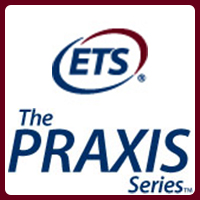Also called Pre-Professional Skills Test (PPST), this test is basically employed to license and certify teachers and to assess their knowledge and skills.
Praxis Test is administered by the Educational Testing Service and given only in English.
3 Types of the Praxis Test:
- Core Academic Skills for Educators: consists of skills in reading, writing and mathematics. This is used to assess aspiring teachers. This is commonly taken during college. This test is done using a computer.
- Subject Assessments: This is done to assess knowledge and skills on specific subjects. Typically, this is used to evaluate a teacher’s knowledge on K-12 subjects. All individuals who want to be a teacher should take this test for licensing and certification purposes. This is required by many states in the USA. Just like the Core Academic Skills for Educators, Subject Assessments is also administered using a computer through an international network. Universities around the world can also use this test.
- This test has more than 90 different tests, which includes Agriculture to World Languages. The test one will take depends on the requirements or the major one is pursuing.
- Content Knowledge for Teaching Assessments (CKT): This is done to evaluate a candidate’s knowledge on a specific subject focusing on K-12 teaching. Candidates who take this exam aims to teach in elementary schools. Specific areas that this measure includes reading and language arts, math, science and social studies. This test assess the following:
- Content knowledge that a candidate need to learn in elementary education and if the candidate can do a student curriculum
- Specialized content knowledge that the candidate can apply making him or her teach the student curriculum
According to ETS, the following are the subtests of CKT:
Reading and Language Arts: This subtest focuses on the essential content knowledge needed for teaching elementary reading and language arts and contains 63 selected-response questions. Approximately 20% of the questions measure content knowledge needed to do the work of the student curriculum, such as identifying the details in a passage that support the main idea. Approximately 80 percent of the questions measure specialized content knowledge needed to teach the student curriculum, such as the knowledge you would use when choosing the most appropriate graphic organizer to help students identify the supporting details for a main idea
Mathematics: This subtest focuses on the essential content knowledge needed for teaching elementary mathematics and contains 52 questions. Approximately 20 percent of the questions measure content knowledge needed to do the work of the student curriculum, such as solving a math problem similar to one students would solve. Approximately 80 percent of the questions measure specialized content knowledge needed to teach the student curriculum, such as the knowledge you would use when choosing an example to demonstrate a mathematical concept or interpreting a student’s mathematical misunderstanding based on a pattern of errors.
Science: The Elementary Education: Science subtest is designed to assess whether you have the broad knowledge and competencies necessary to be licensed as a beginning teacher at the elementary school level. The 50 selected-response questions are based on the material typically covered in a bachelor’s degree program in elementary education.
Social Studies: The Elementary Education: Social Studies subtest is designed to assess whether you have the broad knowledge and competencies necessary to be licensed as a beginning teacher at the elementary school level. The 55 selected-response questions are based on the material typically covered in a bachelor’s degree program in elementary education.
